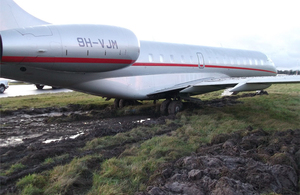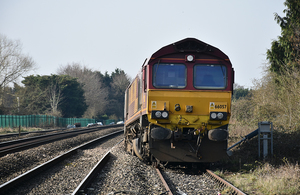Fish Export Service trial period
The service will open for a trial and test phase to allow businesses to sign in, familiarise themselves with the system and create sample documents before it goes fully live on 29 December 2020.
Exporter businesses and fishers who land catch in the EU will be contacted directly inviting them to join the trial and, importantly, provide their feedback. They will be able to test and try the service up to 14 December.
The MMO has expanded its team of specialist advisors and opened a dedicated helpline to provide support and advice. The helpline – 0330 159 1989 – will be open Monday to Friday from 9am to 5pm from 19 November. It will be open 24/7 when the service goes live.
Any business that has not yet registered can do so now. There is more information and guidance on this link.
Here are a few notes to help users and MMO get the most out of this trial period:
1) If you are registering your company for the first time please follow the registration guidance.
2) If your business is already registered, have to hand the access details that were used – the email address and password.
3) We’re inviting businesses to help us test the Fish Export Service in this final phase of development to ensure we are ready before we go live. In this trial phase, the system may time out if you try to record more than ten different landings on one catch certificate. To avoid the issue while you are testing the system, please ensure you only create catch certificates with no more than ten landings.
4) If you use the Internet Explorer 11 browser, you may receive an error message. You should switch to another browser, such as Chrome or Edge. You may notice some blank fields – you can ignore these and they won’t affect your trial.
5) To ensure you get the most value out of this trial phase, the system will verify data and validate certificates exactly as it will when live, and you may find some may fail. Our extended support team is on hand to help guide you through this or any other issues.
6) If you are unable to access your online account, have any issues relating to registration or the Fish Export Service, or need assisted digital support, you can call our dedicated helpline on 0330 159 1989 Monday to Friday from 9 am to 5 pm from 19 November.
7) Prior to going live at the end of December we will remove all sample documents that have been created.
8) If you are exporting over the Christmas period and are likely to need UK catch certificates 72 hours in advance of the go live date, you will be able to use the existing catch certificate process for exports to third countries and contact MMO for assistance by email on ukiuuccc@marinemanagement.org.uk on 28 December, from 9 am to 5 pm.


